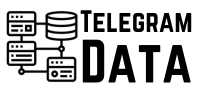When you notice yourself exhibiting the symptoms of analysis paralysis, you have two choices — call a friend to talk it over, or wait at least 24 hours before doing anything else. Doing either will give you a much-needed sanity check and allow you to come back with a clearer mind. Use the 70% rule (like Richard Branson or Louis CK). We know that most decisions in government won’t please 100% of the people, so don’t feel like you need to figure things out 100% of the time before you move forward. Does something seem 70% right?
Do of the people think it’s a good idea?
Great, make the decision and move on. When faced with the uncertainty that comes with big government problems and processes, it’s easy to focus on collecting (and analyzing) more and more information. In doing so, it’s easy to fool yourself and others into thinking you’re making progress. But remember, actions—not information—determine progress.
If you haven’t already, check out the classic
thought-provoking TED Talk, The Paradox of Choice, by Barry Schwartz. Today, state and local governments are increasingly turning to overseas chinese in worldwide data cloud technology to improve efficiency and provide a wide range of services to their communities. GovLoop recently hosted a virtual summit for state and local government innovators, where attendees learned how state and local agencies are innovating with data analytics, cloud, intelligence, and other hybrid solutions.
During the session How the Cloud Can Bring
Innovation to Your Community,” Brian Tracy, Senior Solutions Architect for Public Sector at Amazon Web Services, and Chris Adzima, Senior Information fourth, some companies are known Systems Analyst at the Washington County Sheriff’s Office, discussed the benefits of cloud computing and its practical applications. Cloud computing provides an easy way to access servers, storage, databases, and other application services over the Internet.
Cloud service platforms, such as Amazon
Web Services (AWS), own and maintain the hardware rich data and infrastructure that connects to the network. Customers can then deploy their workloads on AWS, determine which resources they need, and pay for those specific services. This means that an immediate and significant benefit of using cloud computing is low cost. The flexible, dynamic nature of cloud computing also enables governments to move faster, be more agile, and easily replicate successful programs and applications.

